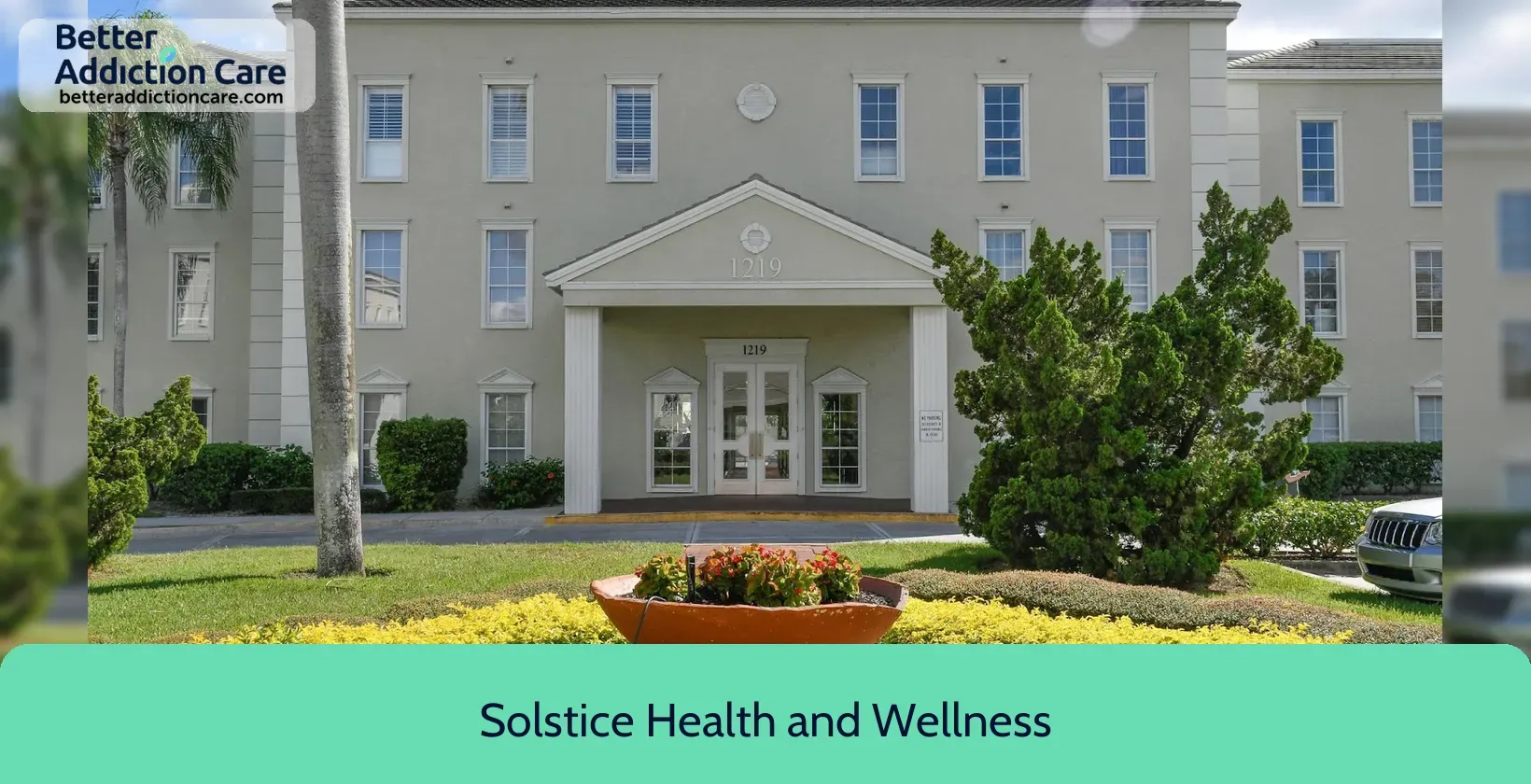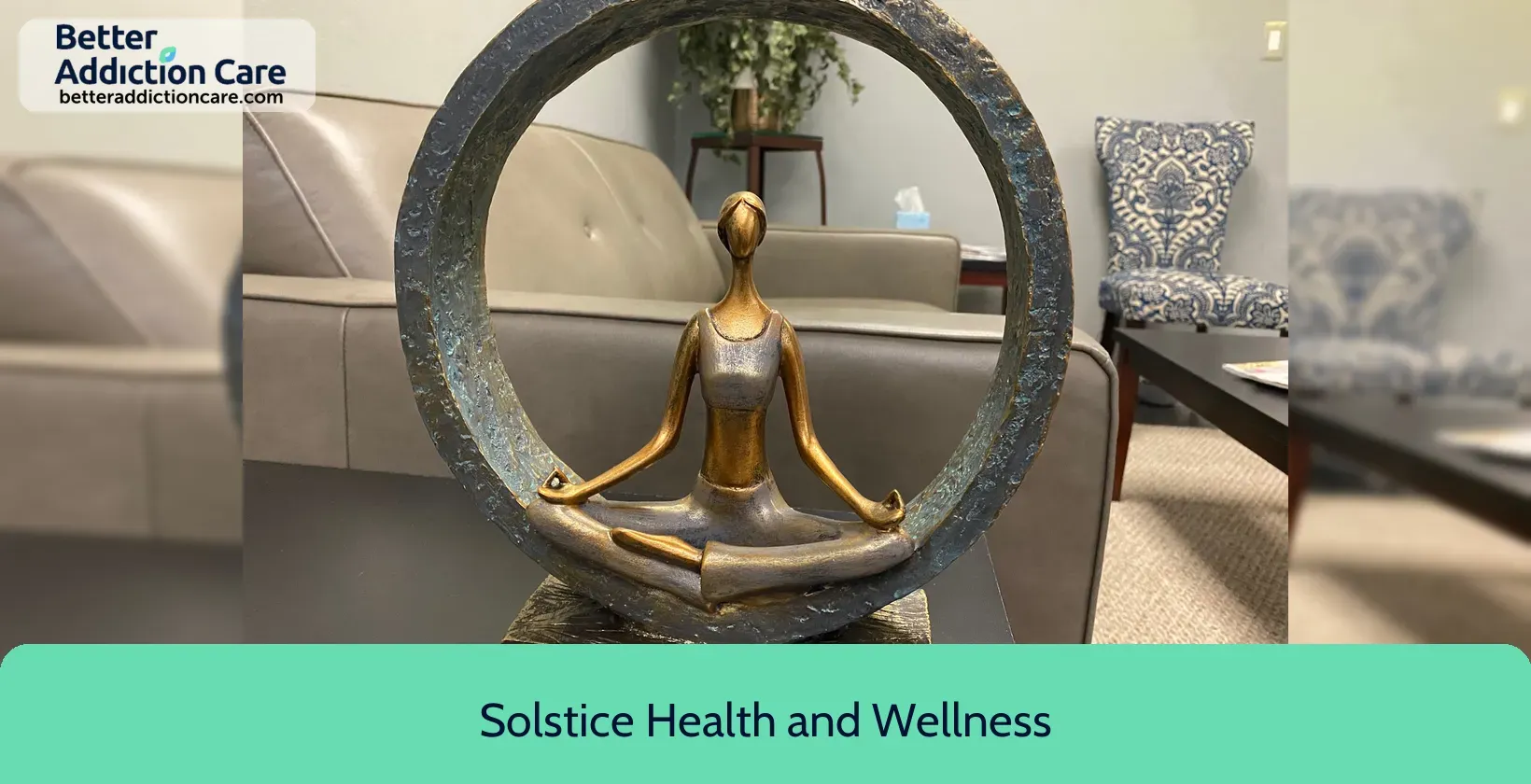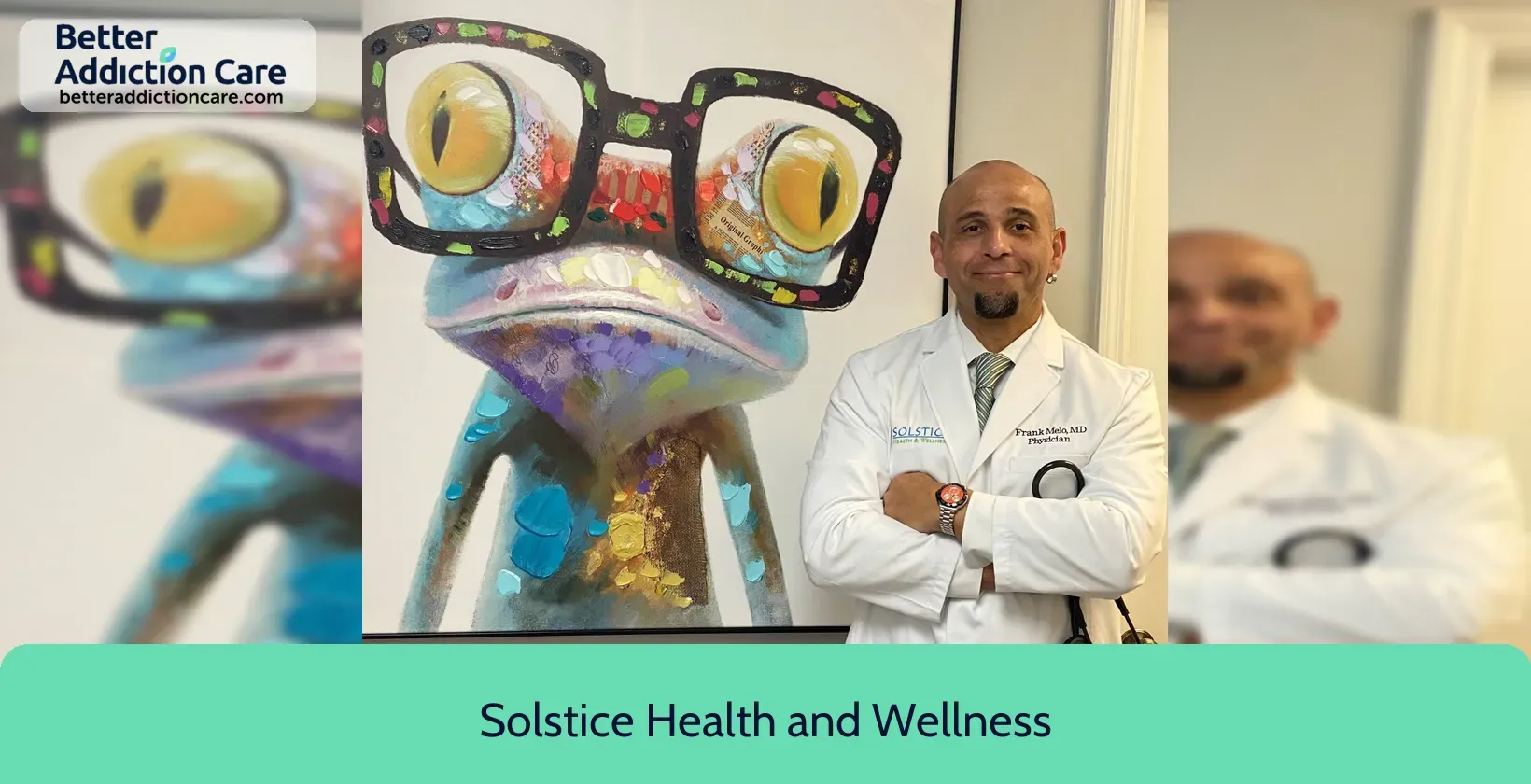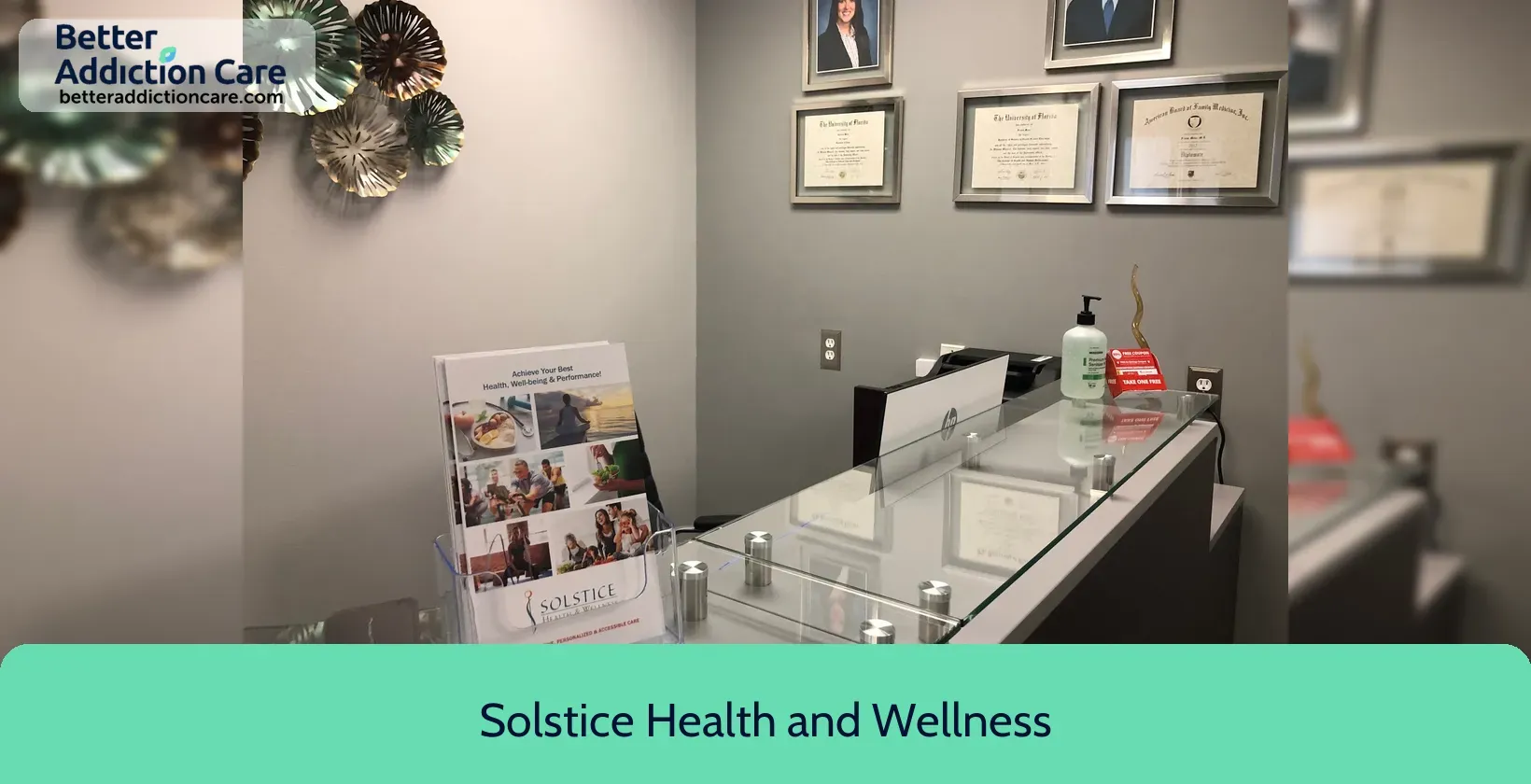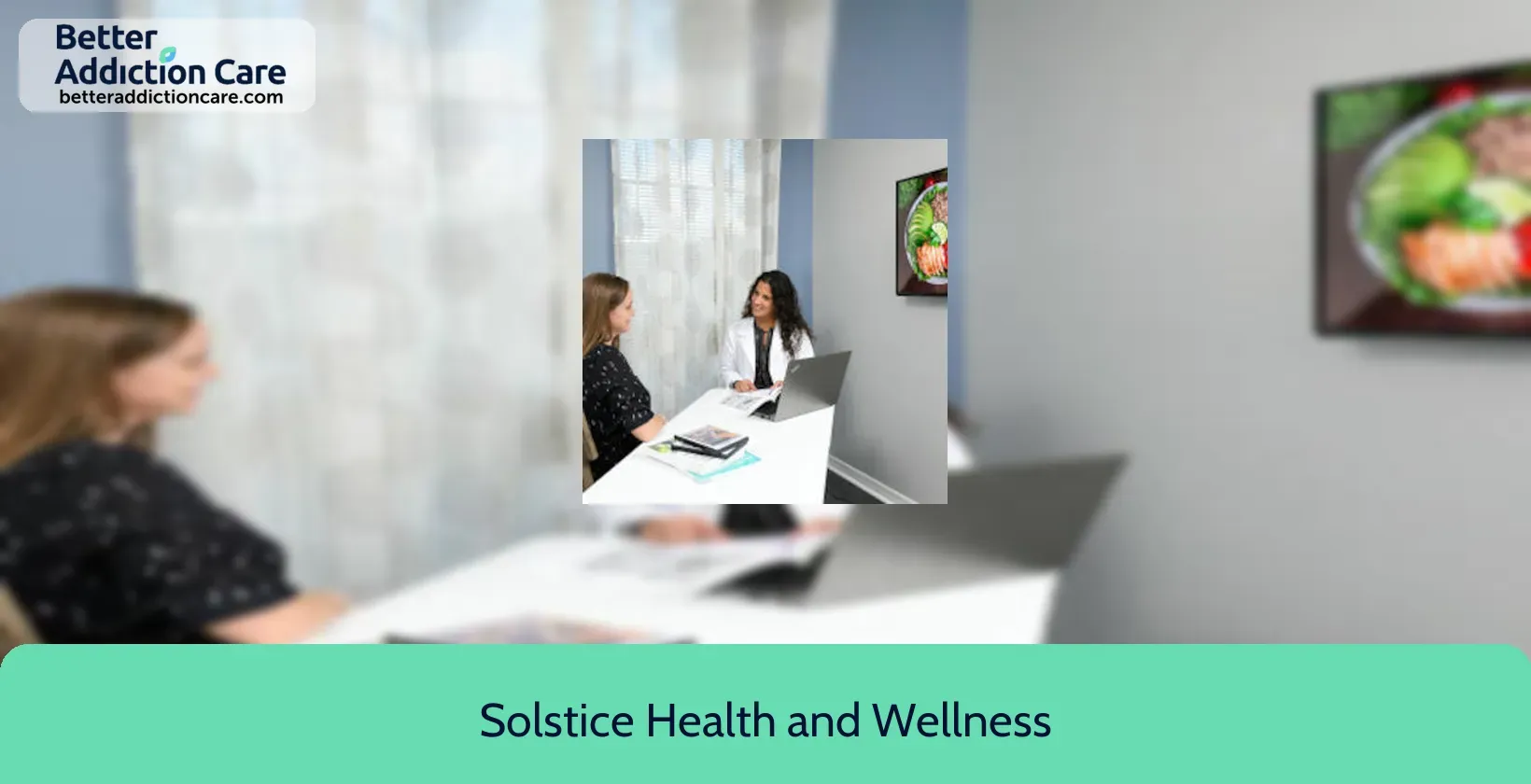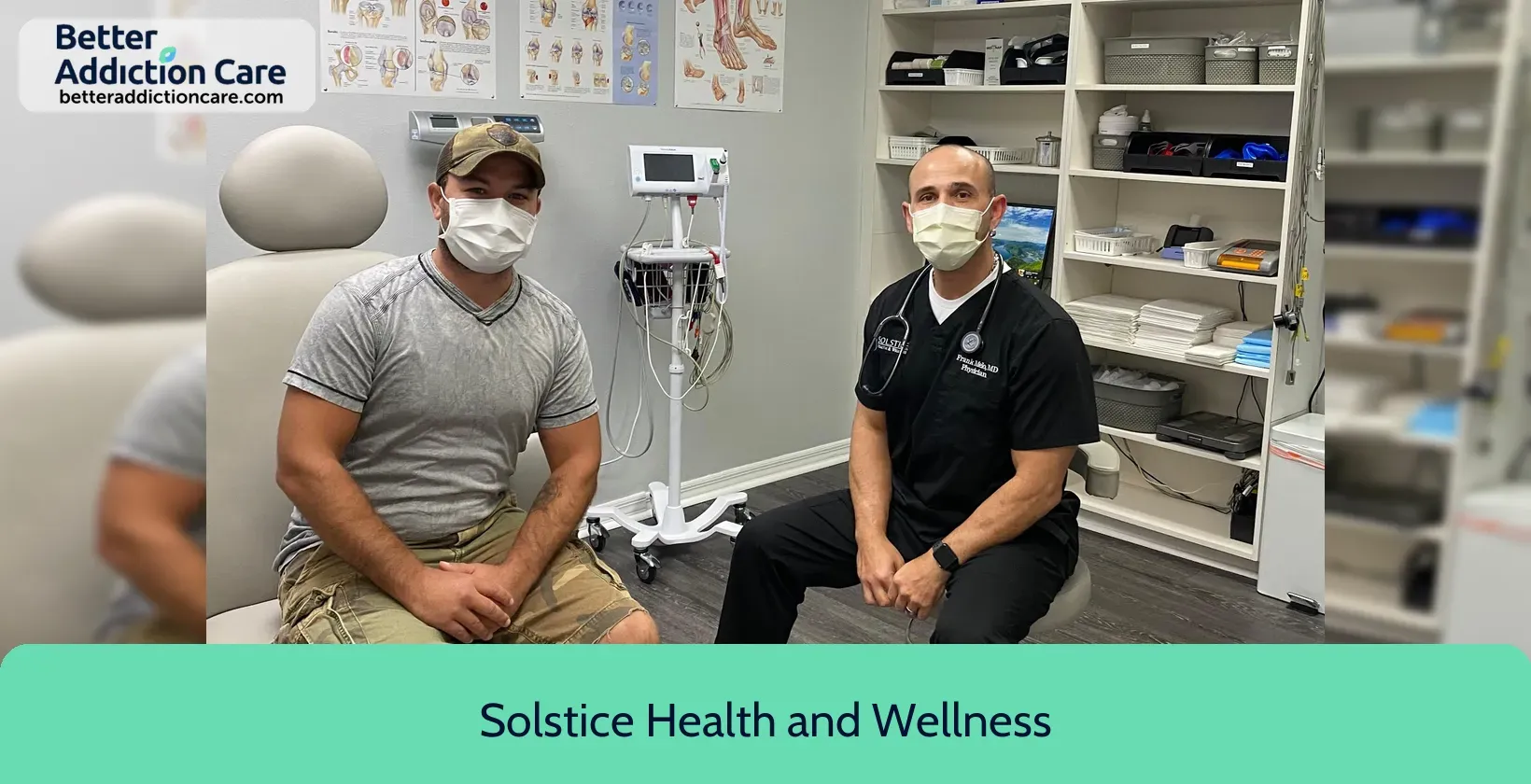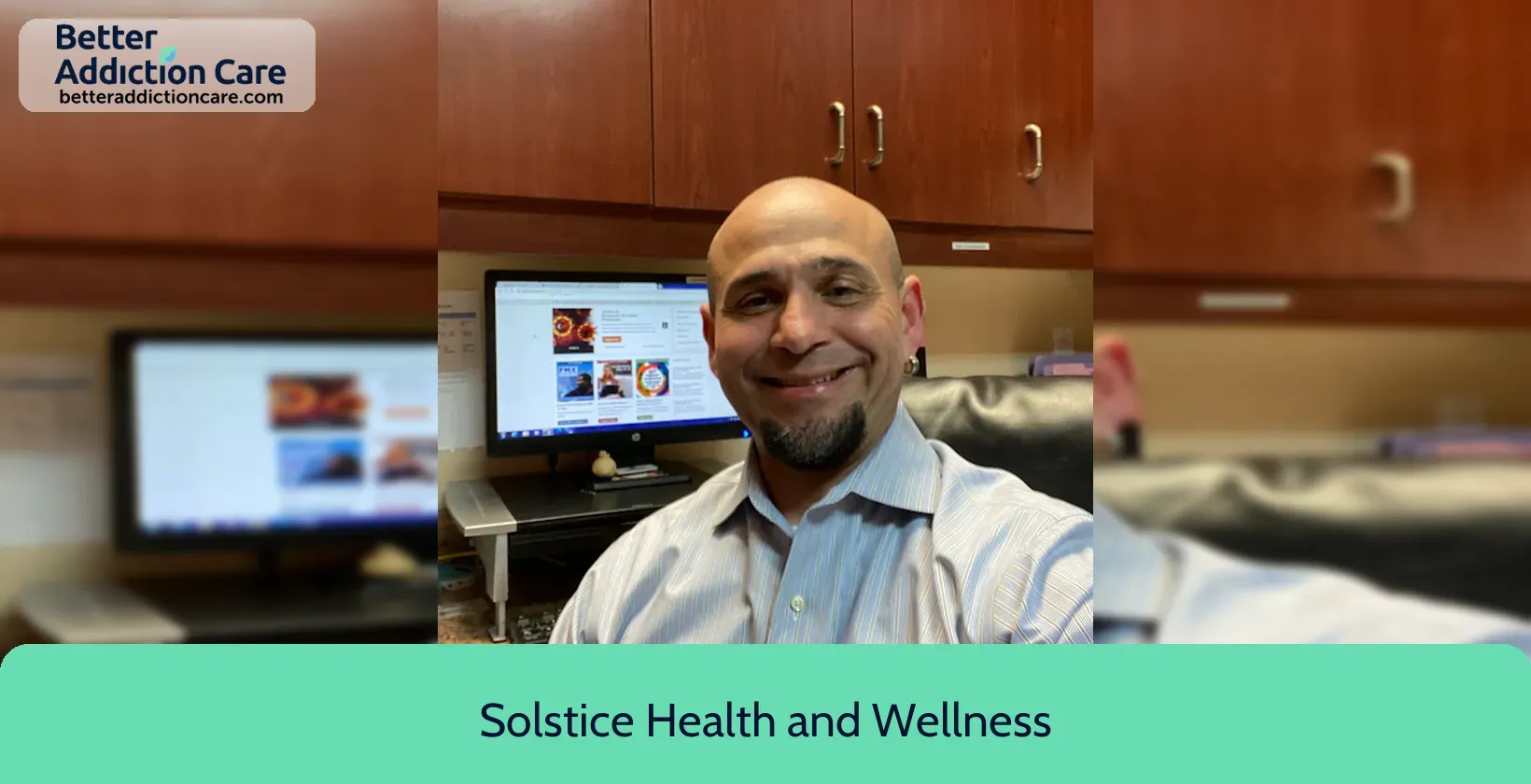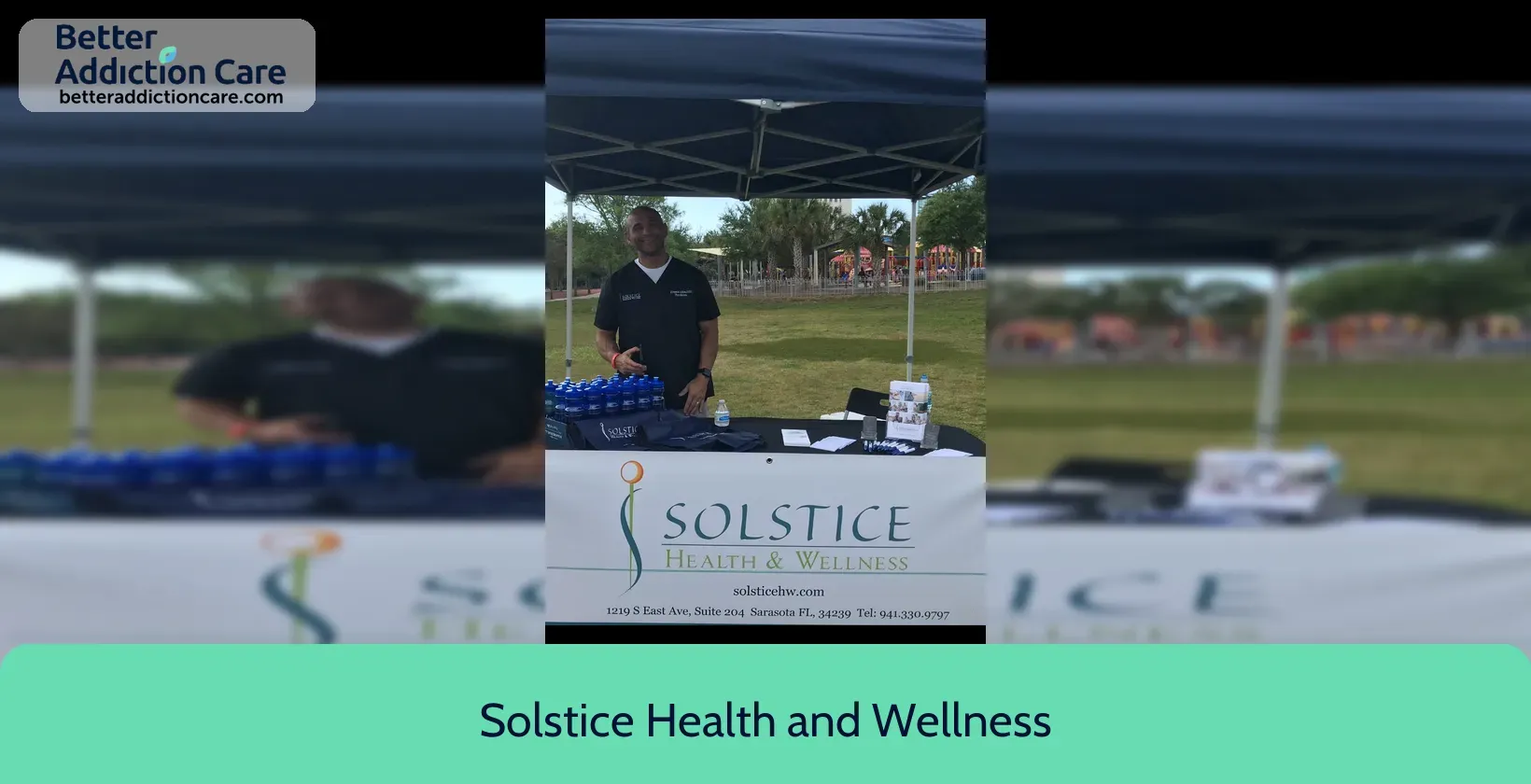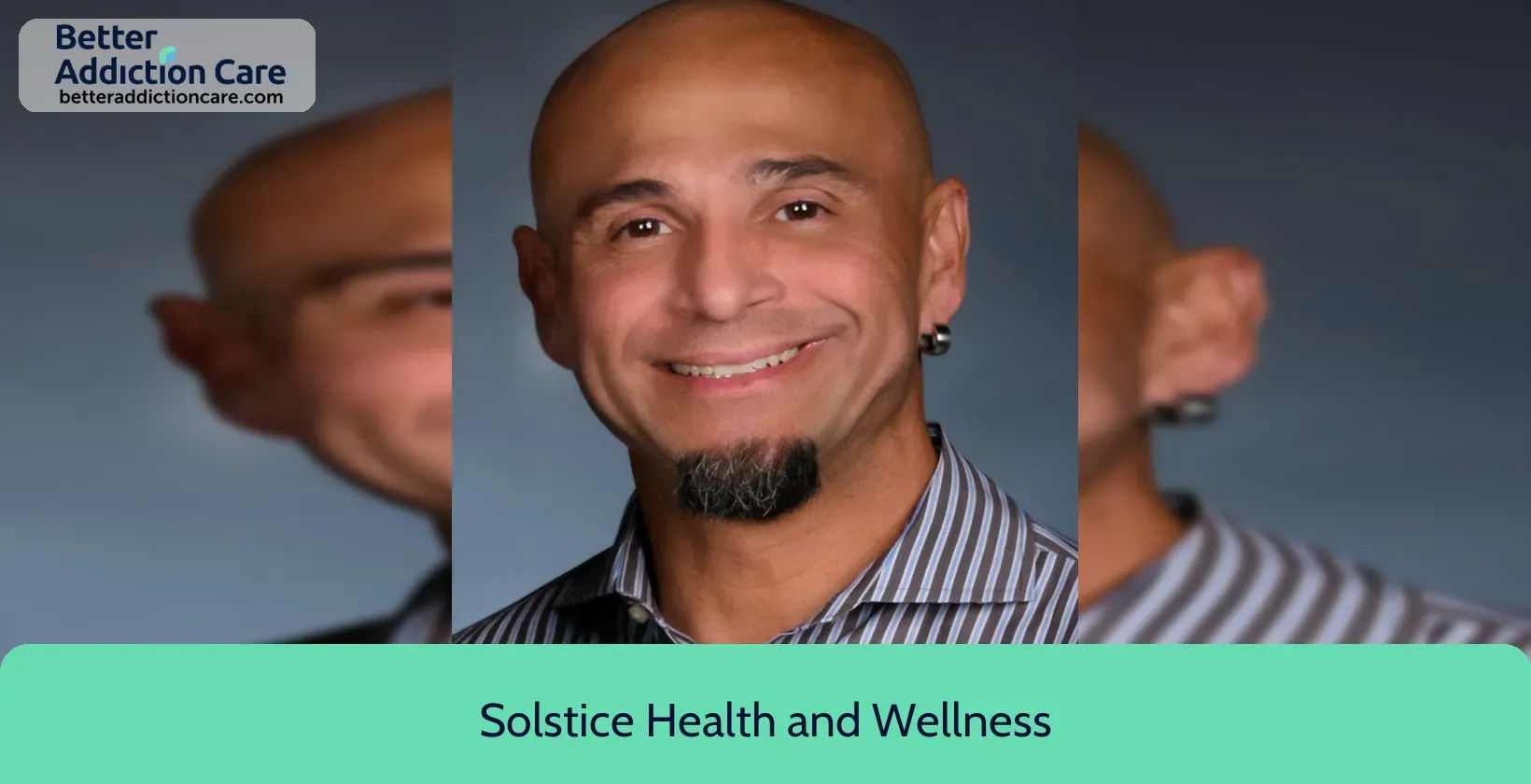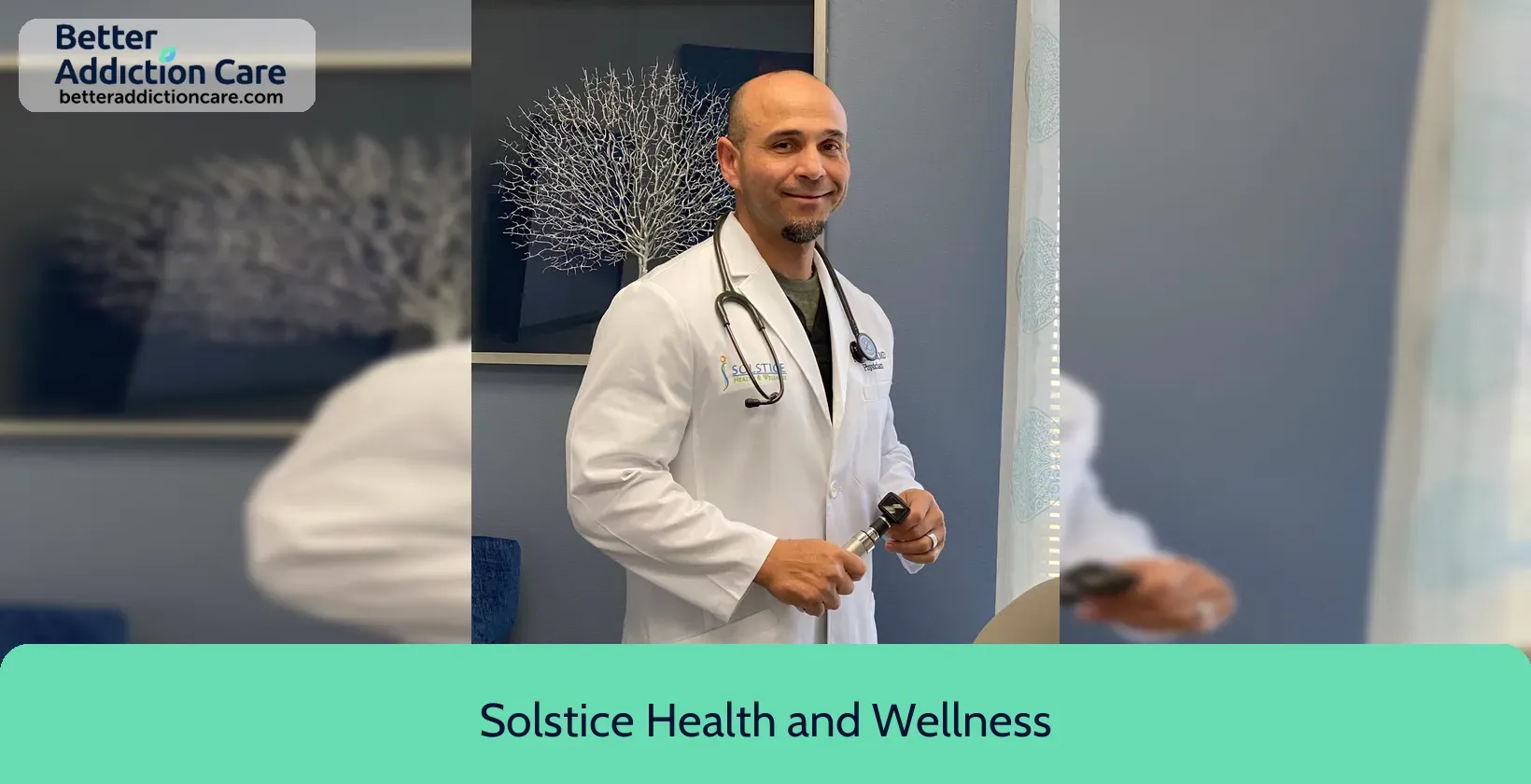Overview
Solstice Health and Wellness is an accredited substance abuse treatment center that provides outpatient detoxification, for men and women between 18 and 65+ years of age. As part of their special programs, Solstice Health and Wellness treats clients with co-occurring mental and substance use disorders, veterans, and pregnant/postpartum women. To help patients achieve sobriety, Solstice Health and Wellness provides treats alcohol detoxification, benzodiazepines detoxification, and cocaine detoxification.. Afterward, patients receive cognitive behavioral therapy, telemedicine/telehealth therapy, and substance use disorder counseling during treatment. Solstice Health and Wellness is located in Sarasota, Florida, providing treatment for people in Sarasota County, accepting cash or self-payment.
Solstice Health and Wellness at a Glance
Payment Options
- Cash or self-payment
Assessments
- Screening for tobacco use
- Comprehensive mental health assessment
- Comprehensive substance use assessment
- Screening for mental disorders
- Screening for substance use
Age Groups
- Seniors or older adults
- Young adults
- Adults
Ancillary Services
- Case management service
- Integrated primary care services
- Suicide prevention services
- Early intervention for HIV
- Mental health services
Highlights About Solstice Health and Wellness
7.25/10
With an overall rating of 7.25/10, this facility has following balanced range of services. Alcohol Rehabilitation: 8.00/10, Drug Rehab and Detox: 7.54/10, Insurance and Payments: 6.00/10, Treatment Options: 7.46/10.-
Alcohol Rehabilitation 8.00
-
Drug Rehab and Detox 7.54
-
Treatment Options 7.46
-
Insurance and Payments 6.00
Accreditations
Drug Enforcement Agency (DEA):
DEA accreditation refers to the process by which a law enforcement agency is recognized by the Drug Enforcement Agency (DEA) as having met specific training, operational, and resource requirements necessary to participate in DEA-led drug enforcement efforts. This accreditation allows the agency to perform DEA-related tasks such as conducting investigations, executing federal search warrants, and participating in joint task forces.
Treatment At Solstice Health and Wellness
Treatment Conditions
- Alcoholism
- Mental health treatment
- Substance use treatment
- Co-occurring Disorders
Care Levels
- Outpatient
- Outpatient detoxification
- Outpatient methadone/buprenorphine or naltrexone treatment
- Regular outpatient treatment
- Aftercare
Treatment Modalities
- Cognitive behavioral therapy
- Telemedicine/telehealth therapy
- Substance use disorder counseling
- Smoking/vaping/tobacco cessation counseling
- Treatment for gambling disorder
Ancillary Services
Languages
- Spanish
Additional Services
- Pharmacotherapies administered during treatment
- Housing services
- Breathalyzer or blood alcohol testing
Special Programs
- Clients with co-occurring mental and substance use disorders
- Veterans
- Pregnant/postpartum women
- Clients with HIV or AIDS
- Clients who have experienced trauma
Common Questions About Solstice Health and Wellness
Contact Information
Read our Most Recent Article About Drug Addiction
DISCLAIMER: The facility name, logo and brand are the property and registered trademarks of Solstice Health and Wellness, and are being used for identification and informational purposes only. Use of these names, logos and brands shall not imply endorsement. BetterAddictionCare.com is not affiliated with or sponsored by Solstice Health and Wellness.
